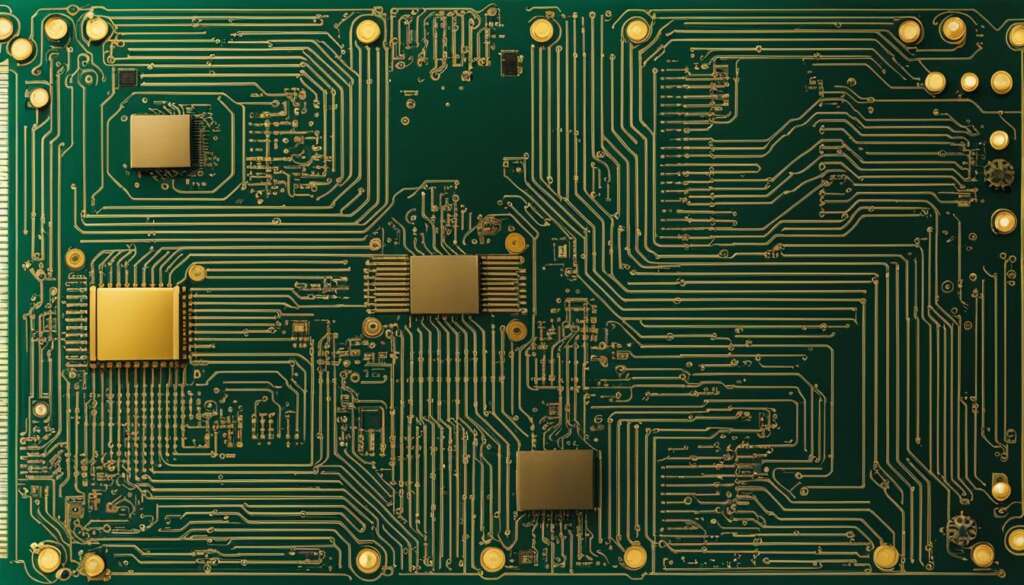Table of Contents
Computer science is a fascinating field that encompasses the study of computers and computational systems. It explores the theoretical foundations of computation, algorithms, data structures, programming languages, and the design and analysis of algorithms. By delving into computer science, individuals gain a deep understanding of the principles, concepts, and fundamentals that drive technological advancements.
But what exactly is computer science? It can be defined as the scientific study of computers and computational systems, focusing on creating innovative software and systems that push the boundaries of technology. It is distinct from information technology (IT), which focuses on the practical application and management of computer systems.
Computer science covers a wide range of domains, including artificial intelligence, data science, machine learning, software engineering, and computational theory. It is a rapidly growing field that offers high job prospects and significant opportunities for innovation and progress. Whether you’re a beginner or an experienced professional, understanding computer science opens doors to a world of exciting possibilities.
The Key Topics in Computer Science
In order to gain a comprehensive understanding of computer science, it is important to study key topics in the field. These topics include computer architecture, algorithms and data structures, CS math, databases, web development, graphics programming, functional programming, and computational theory. Each of these topics plays a crucial role in computer science and offers practical applications for various day-to-day jobs.
Computer architecture involves the design and organization of computer systems, including the hardware components and how they interact. Algorithms and data structures focus on the efficient storage and manipulation of information. CS math provides a foundation for understanding complex computations and problem-solving. Databases enable the storage and retrieval of data in an organized manner.
Web development involves creating websites and web applications, while graphics programming explores the creation and manipulation of visual elements. Functional programming emphasizes the use of functions and mapping data transformations. Computational theory delves into the fundamental principles of computation and explores what can be effectively computed.
| Topic | Description |
|---|---|
| Computer Architecture | The design and organization of computer systems |
| Algorithms and Data Structures | The efficient storage and manipulation of information |
| CS Math | Foundation for complex computations and problem-solving |
| Databases | Storage and retrieval of data in an organized manner |
| Web Development | Creation of websites and web applications |
| Graphics Programming | Creation and manipulation of visual elements |
| Functional Programming | Emphasis on functions and data transformations |
| Computational Theory | Fundamental principles of computation |
By studying these topics, individuals can develop a strong foundation in computer science and apply their knowledge to solve real-world problems and contribute to technological advancements.
Getting Started with Computer Science Education
For those interested in entering the field of computer science, there are several pathways to begin your education. Whether you’re looking to learn the basics of coding or pursue a more comprehensive online program, the key is to start with a strong foundation in computer science.
One popular option is to learn to code. This can be done through various online platforms and resources that offer courses and tutorials for beginners. Learning to code is a crucial first step as it helps you develop problem-solving skills and understand the logic behind programming languages.

Another option for getting started is to enroll in an online computer science education program. These programs often provide a structured curriculum that covers the fundamental concepts and principles of computer science. They offer a comprehensive learning experience, allowing you to delve into topics such as algorithms, data structures, and computer architecture.
For self-taught developers, it’s important to ensure that you cover all the necessary basics of computer science. While it’s possible to gain practical coding skills through online resources, it’s equally important to understand the underlying principles and theory behind computer science. This will help you solve complex problems and work on more advanced projects in the future.
Table: Comparison of Different Pathways to Computer Science Education
| Pathway | Advantages | Disadvantages |
|---|---|---|
| Learning to code | – Flexibility to learn at your own pace – Access to numerous online resources – Focus on practical coding skills |
– Limited coverage of theoretical concepts – Lack of structured learning program |
| Online computer science education | – Comprehensive curriculum – Guidance from experienced instructors – Access to a community of learners |
– Higher time and financial commitment – Requires self-discipline for self-paced programs |
| Self-study and online resources | – Flexibility to choose specific topics of interest – Cost-effective option – Can focus on practical coding skills |
– Limited guidance and mentorship – May miss out on foundational knowledge |
Regardless of the pathway you choose, it’s important to commit to continuous learning and practice. Computer science is a dynamic field that is constantly evolving, so staying updated with the latest advancements is essential. By starting with the basics, building a strong foundation, and continuously expanding your knowledge, you will be well-prepared for a successful career in computer science.
The Benefits of Learning Computer Science
Learning computer science offers a multitude of benefits, making it a rewarding field to explore. With the rapid advancement of technology and the increasing demand for skilled professionals, there are numerous advantages to acquiring computer science knowledge and skills.
- High-Paying Programming Jobs: The computer science job market is thriving, offering a wide range of high-paying programming positions. With a strong foundation in computer science, individuals can pursue lucrative careers as software engineers, data scientists, web developers, and more.
- Technological Innovation: Computer science education equips individuals with the tools and knowledge to drive technological innovation. By understanding the principles of algorithms, computational theory, and software development, individuals can contribute to the development of groundbreaking technologies and solutions.
- Career Advancement: Learning computer science opens doors to career advancement opportunities. With a solid understanding of computer science principles and practical skills, individuals can take on more challenging roles, lead projects, and achieve professional growth within their field.
By investing time and effort into learning computer science, individuals can position themselves for success in a rapidly evolving job market, contribute to technological advancements, and enjoy a fulfilling and rewarding career.
| Benefits of Learning Computer Science |
|---|
| High-Paying Programming Jobs |
| Technological Innovation |
| Career Advancement |
Learning Computer Science Without a Degree
Many individuals are interested in pursuing a career in computer science but may not have a degree in the field. The good news is that it is possible to learn computer science without a degree and still build a successful career in the industry. By focusing on practical projects and building a portfolio, individuals can showcase their skills and prove themselves to potential employers.
One of the key strategies for learning computer science without a degree is to engage in practical projects. These projects allow individuals to apply their knowledge and gain hands-on experience in solving real-world problems. By working on projects in areas such as web development, data analysis, or software development, individuals can demonstrate their practical skills to potential employers. These projects also provide valuable learning opportunities and help individuals gain a deeper understanding of computer science concepts.
Building a portfolio is another important step for learning computer science without a degree. A portfolio showcases an individual’s work and demonstrates their abilities to potential employers. It can include completed projects, code samples, and other relevant work. Building a portfolio not only helps individuals establish their credibility but also serves as a way to track their progress and development as they learn computer science.
| Learning Computer Science Without a Degree: Tips and Strategies |
|---|
| Engage in practical projects: Work on real-world projects to gain hands-on experience and apply your knowledge. |
| Build a portfolio: Showcase your work and demonstrate your abilities to potential employers. |
| Network and prove yourself: Connect with professionals in the industry, attend events, and participate in open-source projects to establish your credibility and expertise. |
| Emphasize practical skills: Focus on developing practical skills such as coding, algorithmic thinking, and data analysis to stand out in the industry. |
| Don’t neglect theory: While practical skills are important, understanding the theoretical foundations of computer science is also crucial for success in the field. |
Networking is another crucial aspect of learning computer science without a degree. By connecting with professionals in the industry, attending events, and participating in open-source projects, individuals can establish their credibility and expertise. Networking provides opportunities to learn from experienced professionals, gain valuable insights, and even secure job opportunities.
While practical skills are essential, it’s important not to neglect the theoretical aspects of computer science. Understanding the underlying principles and concepts is crucial for solving complex problems and advancing in the field. By combining practical projects and building a strong theoretical foundation, individuals can position themselves as competent and well-rounded computer science professionals.

Key Takeaways:
- Learning computer science without a degree is possible through practical projects and building a portfolio.
- Engaging in practical projects allows individuals to apply their knowledge and gain hands-on experience.
- Building a portfolio helps showcase skills and demonstrate abilities to potential employers.
- Networking is crucial for establishing credibility and connecting with professionals in the industry.
- It’s important to focus on both practical skills and theoretical foundations for success in computer science.
Conclusion
Computer science offers a world of opportunities for those who are passionate about technology and innovation. By delving into key topics such as coding, computer architecture, algorithms, databases, and web development, individuals can gain a comprehensive understanding of the principles and concepts that underpin the field. Whether you are a self-taught enthusiast or pursuing formal education, the journey to mastering computer science starts with building a strong foundation.
Learning computer science without a degree is indeed possible, as long as one focuses on practical projects and building a portfolio that showcases their skills. By demonstrating expertise in coding, algorithmic thinking, and data analysis, individuals can prove their capabilities to potential employers. Networking and marketing oneself in the industry is also crucial for securing job opportunities and staying ahead of the competition.
Computer science is a dynamic and rapidly evolving field that opens doors to high-paying programming jobs and career advancements in various industries. With dedication, a thirst for knowledge, and a drive to contribute to technological advancements, anyone can embark on a fruitful journey in computer science. So, whether you’re an aspiring programmer or a seasoned professional, embrace the challenges and opportunities available in this exciting domain.
FAQ
What is computer science?
Computer science is the scientific study of computers and computational systems, including the theoretical foundations of computation, algorithms, data structures, programming languages, and the design and analysis of algorithms.
What are the key topics in computer science?
The key topics in computer science include coding, computer architecture and hardware, algorithms and data structures, CS math, databases, web development, graphics programming, functional programming, and computational theory.
How can I get started with computer science education?
You can start by learning the basics, such as coding, computer architecture and hardware, algorithms and data structures, CS math, databases, web development, graphics programming, functional programming, and computational theory. There are online resources and tips available to guide you in your learning journey.
What are the benefits of learning computer science?
Learning computer science opens doors to a growing job market with high-paying opportunities. It allows you to contribute to technological advancements, solve complex problems, and stand out in the industry.
Is it possible to learn computer science without a degree?
Yes, it is possible to learn computer science without a degree. By focusing on practical projects, building a portfolio, and showcasing your skills, you can compete with degree holders in the industry.












